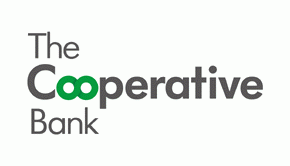
The Co-operative Bank, formerly PSIS, has received its second investment grade credit rating, a BBB- from Fitch Ratings with a stable outlook.
The credit rating agency cited the bank's robust capitalisation, sound funding, solid and stable asset quality, and simple business model. But Fitch added these were offset by modest profitability and a limited domestic franchise.
A BBB- is Fitch's lowest investment grade rating. Co-operative Bank also has a BBB- rating from Standard & Poor's, which revised the outlook to negative from stable in May. Co-operative Bank is the second of the smaller New Zealand owned banks to be assigned a Fitch BBB- rating in the past month after Heartland Bank. Banks are required by the Reserve Bank to have at least one credit rating.
Fitch says Co-operative Bank's profitability is likely to improve as it continues to implement its five year strategic plan. Co-operative Bank's CEO is ex-Westpac executive Bruce McLachlan and its chairman is former ANZ National Bank executive Steven Fyfe. McLachlan told interest.co.nz last year he expects another New Zealand owned bank to grow to a similar size as Kiwibank in retail banking over the next decade and he wants it to be Co-operative Bank.
Fitch says; "The (strategic) plan should help address the bank's weak cost efficiency by better utilising current resources and expanding the product set to grow revenue. However, this may take some time to flow through to profitability. Therefore, profitability is likely to continue to lag domestic peers in the financial year ended 31 March 2014."
The bank's March year annual profit before rebates and tax rose 22% to $8 million. The bank paid out $1 million, or 12.5%, of its March year pre-tax profit in rebates which is the first time it has done so. Annual profit after tax and rebates was up 1.7% to $5.7 million. Its cost to income ratio was 83%, roughly double that of the country's big banks.
"Co-op's capital position offsets some of the risk associated with the low profitability. Capitalisation is strong relative to peers, both on a risk weighted and un-risk weighted basis. The Fitch core capital (FCC) ratio was 14.8% at March 2013," Fitch says. "This is unlikely to deteriorate materially despite the bank's growth ambitions. However, as Co-op's access to common equity is limited as a mutual, a material deterioration in its capital position would be viewed negatively from a rating perspective."
Fitch says Co-operative Bank's asset quality is solid, reflecting a "sound approach" to underwriting loans.
"Mortgages dominate the loan book, with exposures well spread throughout New Zealand. Geographic and single name concentrations are very low as a result. Planned growth in the buoyant Auckland property market is unlikely to materially increase risks given the bank's cautious expansion. Provisioning levels are adequate."
"Funding is dominated by retail deposits, with only limited (5% of total funding) wholesale funding in the form of a bank warehouse (NZ$17 million drawn at March 2013) and a Residential Mortgage Backed Securities deal (NZ$44 million outstanding at March 2013). Any new loan growth is likely to be funded by deposit growth, meaning the bank's loan/deposit ratio should remain about 100%," Fitch adds.
"On-balance sheet liquid assets totaled NZ$194 million, or 13% of total assets, at March 2013, which is lower than some peers, although it easily covers the drawn component of the warehouse facility and a substantial portion of the bank's deposit base. The undrawn component of the warehouse facility (NZ$98 million at March 2013) also provides contingent liquidity, although Fitch places less emphasis on this in its analysis."
Downward pressure on Co-operative Bank's rating could come from a material deterioration in its operating environment, placing pressure on asset quality, and potentially eroding its capital base, Fitch says. Negative rating action could also follow if Co-operative Bank weakens its risk appetite and if its FCC ratio significantly declined as part of its growth strategy.
"Positive rating momentum is less likely in the short-term as it would require a sustainable and significant improvement in profitability while maintaining the bank's solid capitalisation, sound funding and liquidity positions, and modest risk appetite," says Fitch.
Fitch has AA- ratings on the big four Australian owned banks - ANZ, ASB, BNZ and Westpac, and an AA rating on Kiwibank.

We welcome your comments below. If you are not already registered, please register to comment
Remember we welcome robust, respectful and insightful debate. We don't welcome abusive or defamatory comments and will de-register those repeatedly making such comments. Our current comment policy is here.